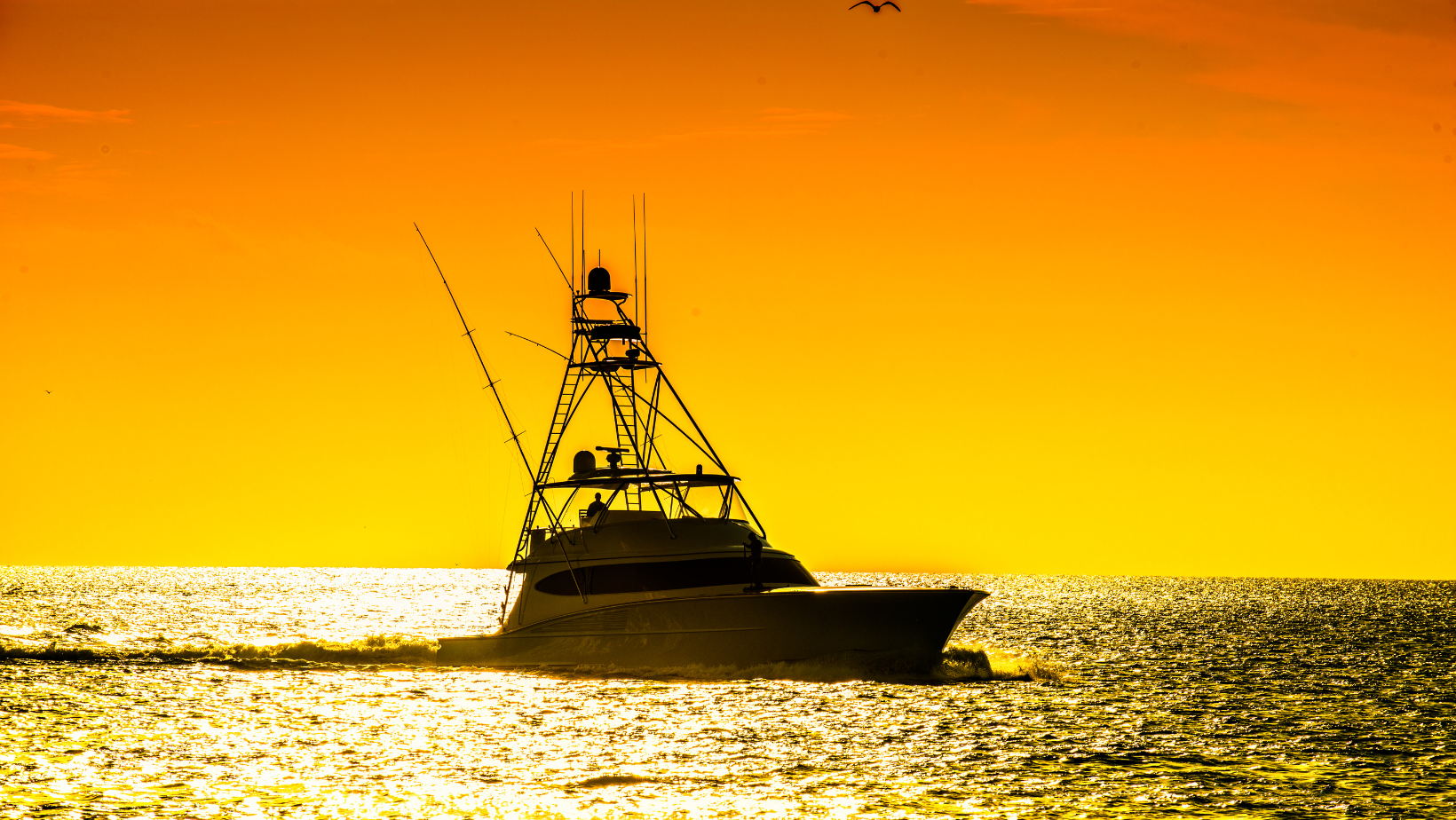Planning an offshore fishing trip? While the thrill of deep-sea fishing is unmatched, safety should always be your top priority. Whether you’re a seasoned angler or a first-time guest on an offshore fishing charter, understanding boat safety can make the difference between a great day on the water and a dangerous situation.
Here’s a complete guide to staying safe and prepared during your next fishing adventure.
1. Check the Weather Before Departure
Before heading out, review updated weather forecasts. Offshore conditions can shift rapidly, and storms or high winds can pose serious risks, especially far from shore.
Key signs to watch for:
-
Sudden wind shifts
-
Darkening skies
-
Choppy water patterns
-
Drop in barometric pressure
If in doubt, postpone the trip or consult the charter captain for advice.
2. Hydration is Crucial
Dehydration happens faster at sea due to wind and sun exposure. Bring plenty of water and avoid over-reliance on alcohol or caffeinated drinks, which can increase dehydration.
Pro Tip: Pack water-rich fruits like oranges or watermelon as refreshing, hydrating snacks.
3. Food Safety Matters on the Water
Perishable foods spoil faster in the sun. Store meat, dairy, and mayo-based dishes in insulated coolers with ice packs. Avoid leaving food exposed for more than one hour in direct sunlight.
Use clean utensils and sanitize surfaces regularly to prevent contamination.
4. Limit Alcohol Consumption
Although it’s tempting to enjoy a drink under the sun, excessive alcohol can impair judgment, lead to dehydration, and increase the risk of falls or drowning. Responsible drinking ensures a safer trip for everyone aboard.

5. Sun Protection is Non-Negotiable
Extended sun exposure offshore can cause:
-
Severe sunburn
-
Heat exhaustion or heatstroke
-
Sun poisoning
Apply broad-spectrum SPF 30+ sunscreen every two hours. Wear a wide-brim hat, UV-blocking clothing, and polarized sunglasses. Provide shaded areas on board, especially for children and those sensitive to heat.
6. Understand Local Boating Laws and Requirements
Each state has different regulations regarding lifejacket use, age restrictions, and safety equipment. When booking offshore fishing charters, ensure the vessel is compliant with both state and U.S. Coast Guard regulations.
Always have a life vest available for every person on board, regardless of their swimming ability.
7. Equip the Boat with Safety Essentials
Offshore trips require more than just fishing gear. The right safety equipment could save lives in emergencies.
Must-have safety gear includes:
-
U.S. Coast Guard-approved life jackets
-
First aid kit (with burn relief, antiseptics, and motion sickness tablets)
-
Fire extinguisher
-
Flashlight with extra batteries
-
GPS locator or marine radio
-
Carbon monoxide detector
-
Extra clothing and dry towels
Note: Cell phone reception is unreliable offshore, so a VHF marine radio is critical for communication.
8. Learn to Recognize Dangerous Conditions
Bad weather often gives visual and environmental clues:
-
Dark thunderheads forming
-
Choppy waves or whitecaps
-
Distant thunder or lightning
-
Wind direction shifting suddenly
Know the flag warnings and understand basic nautical signals. It’s also wise to review your offshore fishing charter company’s safety protocols before departure.
9. Swim with Caution
Swimming in open water is dangerous if not handled properly. Never swim while the boat is running, near propellers, or under the vessel.
Only enter the water when the boat is:
-
Anchored and engines are off
-
In idle or calm waters (never in channels)
-
Monitored by someone on board
Always use a ladder for reboarding and consider wearing a personal flotation device during swims.
10. Reduce the Risk of Drowning
According to the CDC, drowning is one of the top causes of death in boating accidents. Minimize risk by:
-
Practicing emergency drills with passengers
-
Maintaining three points of contact when moving on the boat
-
Knowing the location and use of flotation gear
-
Staying alert, especially around children and inexperienced swimmers
11. Think Like a Wilderness Camper
Offshore adventures require the same level of preparation as a backcountry camping trip. Ask yourself:
-
Do I have everything needed for 12+ hours away from shore?
-
Can I handle medical or weather-related emergencies?
-
Is everyone briefed on safety measures?
A prepared angler is a confident one.
Final Thoughts: Prioritize Safety for a Successful Trip
Offshore fishing charters offer unforgettable moments, from battling trophy fish to relaxing under the open sky. But the key to an enjoyable experience lies in preparation and safety awareness.
By following these boat safety tips, you’re not only protecting yourself, you’re contributing to a safer environment for everyone aboard.
Ready for your next offshore adventure? Choose a reputable offshore fishing charter that prioritizes safety, provides trained crew, and maintains equipment to the highest standards. When safety meets excitement, you get the perfect fishing experience.









